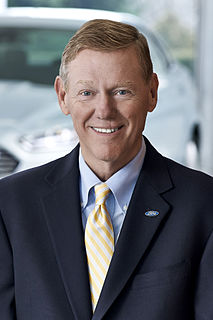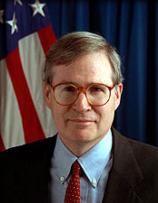A Quote by Peter Thiel
If you focus on near-term growth above all else, you miss the most important question you should be asking: will this business still be around a decade from now?
Related Quotes
When everybody else is in a down market is focusing on what they're doing wrong, instead focus on what you should be doing differently, it may be that what you did in the past was perfectly right. It is possible to do all the right things in business and still have a business crisis because of what's happening in the external environment. And if you start focusing on mistakes only, you're going to miss opportunities.
One of the reasons that metaphor and symbolism are important in books is because they are also important to life. Like, for example say you're in high school and you're a boy and you say to a girl: "Do you like anyone right now?" - that's not the question you're asking. The question you're asking is, "do you like me right now."
No one from the intelligence community, anyplace else ever came in and said, ‘What if Saddam is doing all this deception because he actually got rid of the WMD and he doesn't want the Iranians to know?' Now somebody should have asked that question. I should have asked that question. Nobody did. Turns out that was the most important question in terms of the intelligence failure that never got asked.
Let's face it: Most companies in most industries have a kind of tunnel vision. They chase the same opportunities that everyone else is chasing, they miss the same opportunities that everyone else is missing. It's the companies that see a different game that win big. The most important question for innovators today is: What do you see that the competition doesn't see?
The most important thing that a company can do in the midst of this economic turmoil is to not lose sight of the long-term perspective. Don't confuse the short-term crises with the long-term trends. Amidst all of these short-term change are some fundamental structural transformations happening in the economy, and the best way to stay in business is to not allow the short-term distractions to cause you to ignore what is happening in the long term.
As an emerging photojournalist in the early 70s, my focus was on trying to create stories for magazines to the exclusion of almost everything else. I wish someone had told me then that the most personally important pictures you’ll ever make are those about you and your life. I’m glad I had the chance to work for some great magazines, but I really miss those little everyday images, the ones that take place in and around your own life, which will never make the news. Don’t sell yourself short: photograph your own life, not just everyone else’s.


































